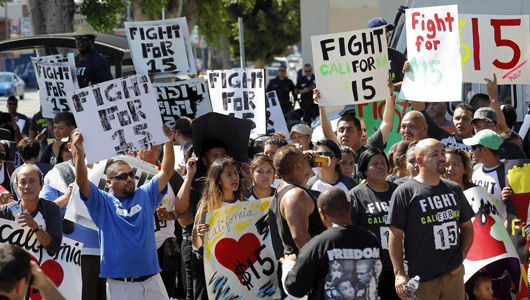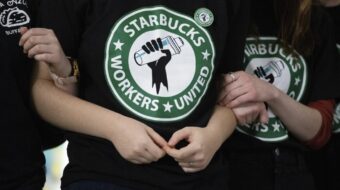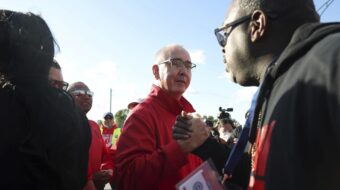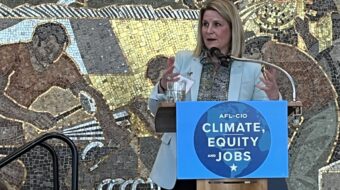
On Tuesday, Nov. 10, low wage workers – including fast food and health care employees -will hold demonstrations and rallies across the U.S. demanding a $15 an hour minimum wage.
Fight For $15, a national organization sponsoring the Day of Action on November 10, is calling on all those who support working people to join an event near them. For more information, go here.
President Obama has called for raising the nation’s minimum wage to $12 an hour. A bill raising it to $15 an hour has been introduced by Sen. Bernie Sanders, I.-Vt., and by the Progressive, Black and Hispanic congressional caucuses. Needless to say, the Republicans are blocking both proposals.
That’s why the Administration has been encouraging cities and states to raise the wage on their own.
Polls show that Americans support raising the minimum wage. In recent years 14 states have done so. Last year alone voters raised the bottom wage in Arkansas, Alaska, Nebraska and South Dakota. Tuesday, voters in Tacoma, Washington, okayed a raise totaling $12 an hour.
However, some 64 million working people, almost half of all workers in the U.S, are paid the current minimum wage of $7.25 an hour.
The minimum wage was last increased in 2009 as the last step in a three-step increase approved by Congress in 2007. Before that, the hourly minimum wage had been stuck for ten years at $5.15.
According to the Pew Research Center, “Adjusted for inflation, the federal minimum wage peaked in 1968 at $8.54 (in 2014 dollars). [Today] the minimum wage has lost about 8.1 percent of its purchasing power to inflation.”
The Alliance for a Just Society estimates that it would take 93 hours a week for the average American earning the current minimum wage to earn enough for their families to meet basic needs and to have money for emergencies.
The Alliance estimates that on the average it would take $16.87 per hour for single adults to earn a secure living. In some cities, that figure becomes much higher.
On the other hand, former U.S. Secretary of Labor, Robert Reich, calculates that “a full-time worker with two kids needs at least $30,135 a year to be safely out of poverty. That’s $15 an hour for a 40 hour workweek.”
Seattle, San Francisco and Los Angeles have recently raised their minimum to $15 an hour. And several weeks ago, the state legislature in New York did the same for fast food workers there.
Although no jurisdiction in the U.S. has increased its minimum wage by more than $15 an hour, many have laws in place calling for the minimum wage to automatically rise with the cost of living.
Moreover, across the U.S., unions, community groups and advocates for low wage workers have agreed to unite around the demand that the minimum wage everywhere should immediately go to $15 an hour.
Over the past two years, workers at fast-food and big-box retail establishments across the country have been striking for $15.
Most economists agree that a $15 an hour minimum wage would help the U.S. economy as a whole.
Reich says, “That’s because a higher minimum puts more money into the pockets of people who will spend it, mostly in the local economy. That spending encourages businesses to hire more workers.”
In its call for supporters to join low wage workers on Tuesday, November 10, Fight for $15 says:
“We’re standing together on November 10 to say, ‘We need a raise!’ People across the country will be standing up with fast-food workers, child care workers and all 64 million underpaid workers making less than $15.
“Together we’re turning the tide in favor of working people and our families. And we’ll need everyone’s help – including yours – to make this a reality.”
To show your support for the Day of Action on Nov. 10, follow this link.
Photo: Fast food workers in Los Angeles call for a $15 an hour minimum wage. | Nick Ut/AP












Comments